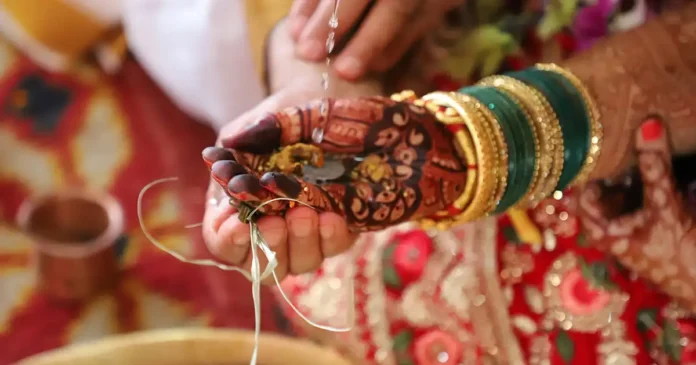Continued from: To Contain A Heart’s Desire
But in other words, this word means a certain particular, universal social order attached to the status quo of marriage, and that is precisely: that the bride leaves the house of her parents to live with her husband, in the house of her husband’s parents or somewhere else with him alone. But henceforth the husband’s house becomes her house, the husband’s parents – her parents-in-law, the husband’s brothers and sisters – her brothers- and sisters-in-law. Giving away one’s girl in marriage is giving her away altogether, in terms of custom, to someone else’s house, to another family. For her, now-onwards, husband’s house and family come first, and only later comes her parent’s house (to add here the phrase ‘if at all’, would be a bad myth). In a civil society, however, meaning no itching, unfortunately, for the feminists, marriage cannot mean anything else, for example: ‘giving away the boy in marriage’. If someone itches to say that a bride’s father buys the groom with the dowry he gives, my answer is ‘no’. I won’t, either, even be that impolite to say that the bride’s father bribes the groom to accept his daughter to rid himself of the social taboo, that would otherwise come. That would be incomplete and incorrect too. A father’s duty cannot be perfunctory.
What poses odd, is the sense in which the concept of ‘kanyadan’ comes into being and use. It literally means ‘giving away girls in marriage’. The notions it carries with it are most derogatory. ‘Giving away of the girl’ by her family makes out a commodity of her, albeit, a dignified commodity, but with no sense of self and self-respect attached to the female, to the individual, to the human being. Marriage as an institution has gone down a long march in our society, from ‘swayamvar’ to ‘kanyadan’. Historical evidence proves that in ancient times, in the early period of civilization, there was no discrimination in society on the basis of gender. Women had equal rights and say regarding their marriage, as much as their contemporary men had.


